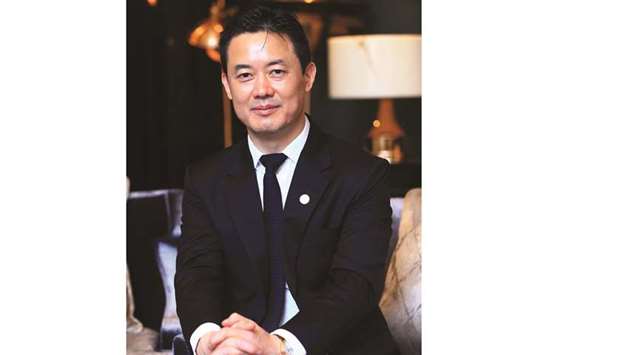Huawei, a leading global information and communications technology (ICT) solutions provider, sees significant potential to support Qatar’s journey to a digital economy.
"In Qatar specifically, the company is exploring how to stimulate economic growth through the expansion of 5G capabilities," Charles Yang, president of Huawei Middle East said, reaffirming its commitment to supporting major events like the upcoming 2022 FIFA World Cup.
By empowering local partners, bolstering talent development, and committing support to mega projects, Huawei aims to contribute to the digitisation efforts outlined in the Qatar National Vision 2030, he said.
“Digitisation in the Middle East has accelerated remarkably over the last year, with global network traffic having increased by around 50% during the pandemic,” he said.
The ICT or information communication and technology industry thus has an important responsibility to create new social and business value for governments, organisations, and individuals," according to him.
“The Middle East has been an exciting region for us given the enormous scale of developments that are underway that can be empowered by technology. This is epitomised by the rapid development of 5G that has exceeded many expectations. Computing power also plays an integral role in enabling businesses when it works in parallel with 5G. The region today is more connected than at any point in history,” said Yang.
Global 5G deployments have proceeded faster than expected. By the end of 2020, more than 140 commercial 5G networks had been deployed in 59 countries and regions, and the number of 5G subscribers worldwide had exceeded 220mn.
Globally, the number of 5G networks and base stations of the first year is six times more than 4G, and user growth of 5G is 500 times faster.
Highlighting that the Middle East has become a leading 5G region globally, Yang said in just 19 months, the number of 5G users have exceeded 2mn which 4G took double times, and it is expected that 5G user grow very fast.
He said it is the reason why regulators in the Middle East have released many policies which greatly promote 5G developments; but more industry policies are still needed to unleash 5G’s full potential.
Huawei believes that underpinning that co-operation is a shared responsibility towards cybersecurity. The company has thus been working closely with governments, security experts, and enterprises across the Middle East to help evolve cybersecurity assurance and privacy protection systems.
“Cybersecurity and privacy protection have been and will always be our top priorities. Yet cybersecurity is not an issue for any single company or country alone,” Yang said, adding to ensure transparency and joint collaboration, Huawei is always ready to sign cybersecurity co-operation agreements with governments and customers in the Middle East.
By empowering local partners, bolstering talent development, and committing support to mega projects, Huawei aims to contribute to the digitisation efforts outlined in the Qatar National Vision 2030, he said.
“Digitisation in the Middle East has accelerated remarkably over the last year, with global network traffic having increased by around 50% during the pandemic,” he said.
The ICT or information communication and technology industry thus has an important responsibility to create new social and business value for governments, organisations, and individuals," according to him.
“The Middle East has been an exciting region for us given the enormous scale of developments that are underway that can be empowered by technology. This is epitomised by the rapid development of 5G that has exceeded many expectations. Computing power also plays an integral role in enabling businesses when it works in parallel with 5G. The region today is more connected than at any point in history,” said Yang.
Global 5G deployments have proceeded faster than expected. By the end of 2020, more than 140 commercial 5G networks had been deployed in 59 countries and regions, and the number of 5G subscribers worldwide had exceeded 220mn.
Globally, the number of 5G networks and base stations of the first year is six times more than 4G, and user growth of 5G is 500 times faster.
Highlighting that the Middle East has become a leading 5G region globally, Yang said in just 19 months, the number of 5G users have exceeded 2mn which 4G took double times, and it is expected that 5G user grow very fast.
He said it is the reason why regulators in the Middle East have released many policies which greatly promote 5G developments; but more industry policies are still needed to unleash 5G’s full potential.
Huawei believes that underpinning that co-operation is a shared responsibility towards cybersecurity. The company has thus been working closely with governments, security experts, and enterprises across the Middle East to help evolve cybersecurity assurance and privacy protection systems.
“Cybersecurity and privacy protection have been and will always be our top priorities. Yet cybersecurity is not an issue for any single company or country alone,” Yang said, adding to ensure transparency and joint collaboration, Huawei is always ready to sign cybersecurity co-operation agreements with governments and customers in the Middle East.

